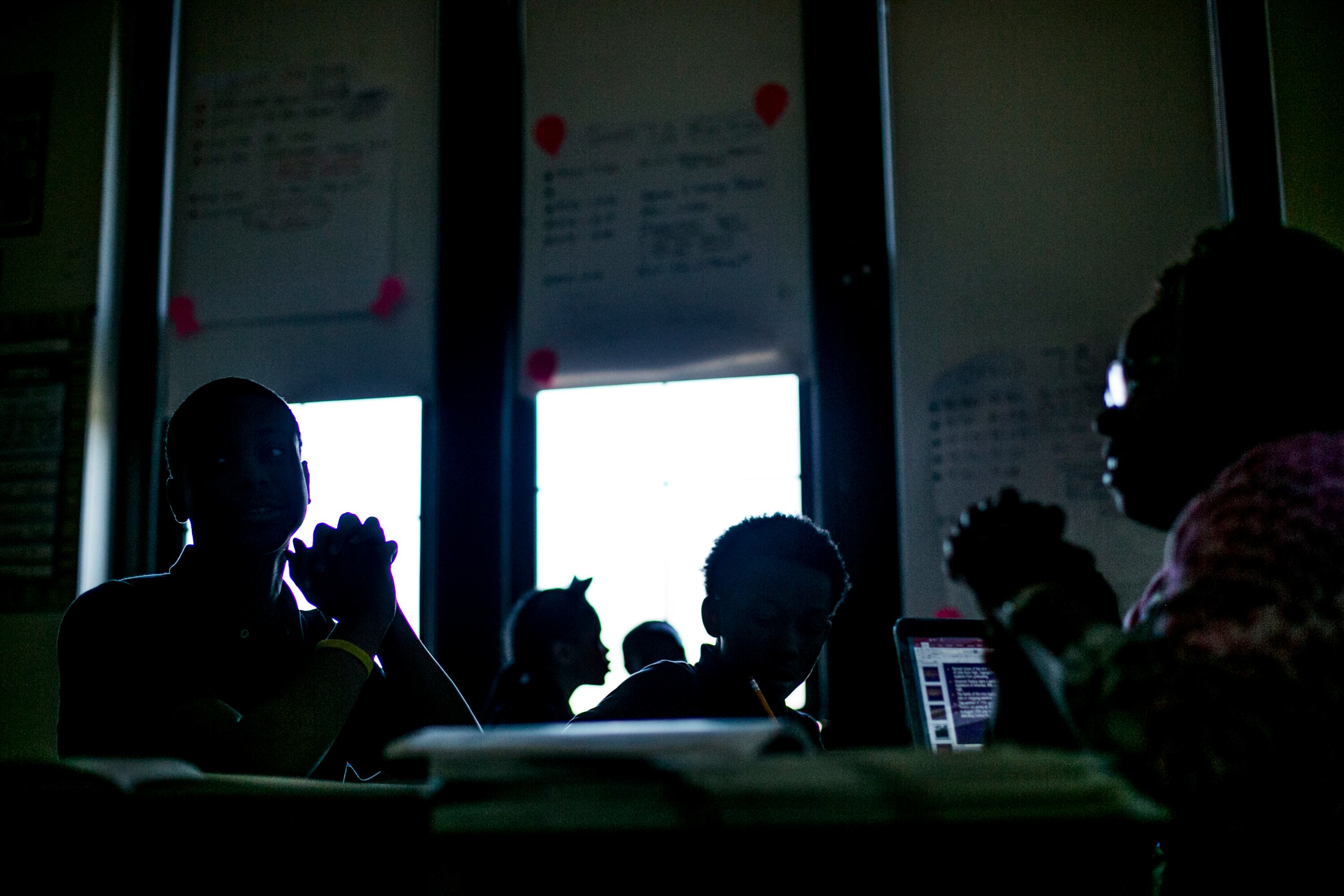Sign up for Chalkbeat Detroit’s free daily newsletter to keep up with the city’s public school system and Michigan education policy.
A supplemental state school budget that would restore about half of the money that was previously cut from grants for student mental health and school safety is headed for a vote in the Michigan legislature.
A joint conference committee voted Wednesday morning to move the $126 million supplemental budget forward for a vote in the House and Senate. The move comes after educators pleaded with lawmakers to restore the $300 million that was cut from per-pupil grants for the 2024-25 school year for districts to address mental health and safety.
It also comes as billions of dollars in federal COVID relief is set to run out by the end of the year amid a youth mental health crisis.
In June, Michigan lawmakers passed a state school budget that cut the onetime per-pupil grants, or Sec. 31aa funds, by 91%.
Previously proposed budgets from the governor’s office and the House of Representatives included $300 million for Sec. 31aa. The Senate proposed $150 million.
When the House and the Senate entered a conference committee to come to a budget deal, the Sec. 31aa funding was slashed to $25 million, which shocked and concerned education leaders.
While many superintendents said their districts wouldn’t have to make cuts to staff such as counselors or student resource officers this year, they worried about the difficult decisions they would have to make in coming years if the funding was not restored.
Some districts put a pause on expanding staff mental health and safety training because of the uncertainty.
Michigan has long had a shortage of school mental health staff. Before 2018, the state school budget didn’t dedicate any money to districts to improve student mental health.
The supplemental budget that moved from the committee meeting would add $125 million to Sec. 31aa grants. It adds language saying that if a local school system uses the money to hire staff, the district would need to pay for the staff’s salaries with other district funding next year.
It would also add a requirement that the Michigan Department of Education report the number of districts using Sec. 31aa money to pay school resource officers.
Another $1 million would support a tip line for students to anonymously report when firearms are improperly stored and accessible to minors. The MDE would also have to distribute materials to students that explain how to properly store firearms.
Rep. Nancy DeBoer, a Republican from Holland, introduced an amendment during the hearing that would have increased the funding by $300 million, saying restoring only half of the money was a “half measure.”
“This means that the schools will install only half the door locks or half the security cameras that they might otherwise,” she said. “It means only half of the students who need mental health supports might receive them. This isn’t good enough.”
Sen. Darrin Camilleri, a Democrat from Trenton, asked DeBoer where the additional money would come from “when there is nothing left on the balance sheet.”
DeBoer said it would be possible to find the money in the corporate income tax fund, which would come out of the state’s general fund.
The amendment was voted down.
The vote for approving the supplemental budget in the committee was 5-1, with DeBoer abstaining. Sen. Jon Bumstead, a Republican from North Muskegon, voted against it.
The supplemental budget now must pass votes in the House and the Senate in order to go into effect.
Hannah Dellinger covers K-12 education and state education policy for Chalkbeat Detroit. You can reach her at hdellinger@chalkbeat.org.





